The Australian Curriculum
Edited on November 29, 2018
The Australian Curriculum is designed to develop successful learners, confident and creative individuals, and active and informed citizens. It is presented as a progression of learning from Foundation-Year 10 that makes clear to teachers, parents, students and others in the wider community what is to be taught, and the quality of learning expected of young people as they progress through school.
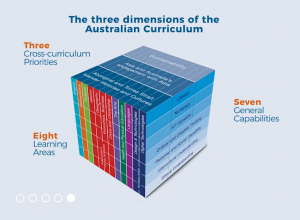
The Australian Curriculum Implementation Schedule for ACT Schools outlines the requirements for implementing the K-12 Australian Curriculum. The Office of the Association supports schools to ensure that the Australian Curriculum taught is the most current curriculum published by ACARA on the Australian Curriculum website.
Click on the link below to access more information:
Australian Curriculum Implementation Schedule for ACT Schools 2018
The Australian Curriculum K-10 Workshop Series
This workshop series, delivered to AISACT Member schools throughout 2018, provided insightful learning opportunities for attendees. The input for each workshop was based on the work of Dr Tracey McAskill who managed the development of 24 of the 34 subjects of the F-10 Australian Curriculum. The workshops provided a foundation for effective use of the standards to plan for student learning, to develop assessment, to make judgements about student performance and to effectively differentiate instruction to meet the needs of all students.
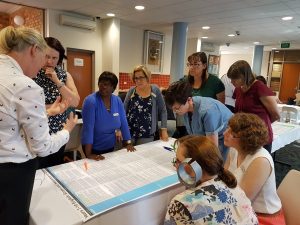
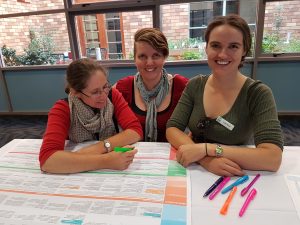
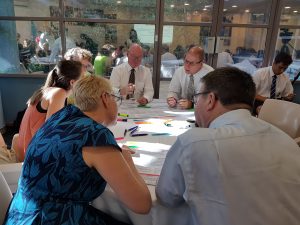
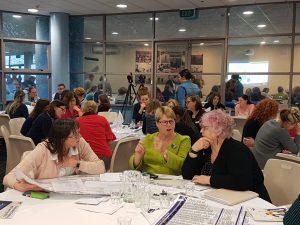
Workshop 1: Unpacking Achievement Standards and Levels of Performance
The most important element in a standards-based curriculum is the standards and yet in the Australian Curriculum, the achievement standards are the most difficult element to understand. This workshop emphasised the structure and language of achievement standards. By the end of the workshop, participants had the tools to unpack the achievement standards and understand how to use them to discriminate between levels of achievement or student performance.
(Click on the link to access more information)
Unpacking Achievement Standards and Levels of Performance
Workshop 2: Standards-based Planning and Assessment
This workshop lead participants through the backwards design planning process using the Australian Curriculum. This process begins with the end in mind [achievement standard] and then derives the curriculum from the evidence of learning [skills and understandings] and the teaching needed to equip students to perform [Content descriptions]. This workshop deepened participants’ understanding of achievement standards and their role in planning for student success. A key take-away message was that planning using the Australian Curriculum is not a checklist of content descriptions. The workshop clarified the intention of the Australian Curriculum and the relationship between achievement standards, content descriptions and assessment.
(Click on the link to access more information)
Standards-Based Planning and Assessment
Workshop 3: Using the Australian Curriculum to Differentiate
The Australian Curriculum assumes that all students can and will learn. Teachers are tasked with ensuring every student learns age-appropriate content and achieves year or band level learning expectations as described in the curriculum or in ILPs. Yet, increasingly, each classroom has a range of students with varying levels of readiness, learning preferences and interests. This workshop focused on how the Australian Curriculum can be used to differentiate content, process and product, with a focus on achievement standards. A number of practical examples were unpacked to develop understandings about how to change the complexity and breadth and depth of learning to support, enrich or extend students.
(Click on the link to access more information)
Using the Australian Curriculum to Differentiate
Workshop 4: Using the National Literacy and Numeracy Progressions to Differentiate
In January 2018, ACARA released the National Literacy and Numeracy Progressions. The primary purpose of this resource is to provide a tool for teachers to locate students’ levels of literacy and numeracy to facilitate differentiated instruction. The workshop familiarised participants with this tool and provided strategies for schools to support the development of student literacy and numeracy so that students can achieve across all learning areas in the Australian Curriculum.
(Click on the link to access more information)
Using the National Literacy and Numeracy Progressions to Differentiate

 Read more
Read more